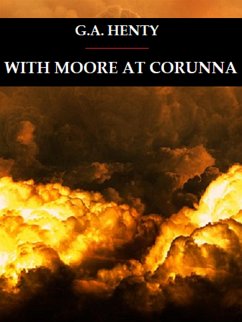From the termination of the campaigns of Marlborough—at which
time the British army won for itself a reputation rivalled by that of
no other in Europe—to the year when the despatch of a small army
under Sir Arthur Wellesley marked the beginning of another series
of British victories as brilliant and as unbroken as those of that great
commander, the opinion had gained ground in Europe that the
British had lost their military virtues, and that, although
undoubtedly powerful at sea, they could have henceforth but little
influence in European affairs. It is singular that the revival of
Britain’s activity began under a Government which was one of the
most incapable that ever controlled the affairs of the country. Had
their deliberate purpose been to render nugatory the expedition
which— after innumerable vacillations and changes of purpose—
they despatched to Portugal, they could hardly have acted otherwise
than they did.
time the British army won for itself a reputation rivalled by that of
no other in Europe—to the year when the despatch of a small army
under Sir Arthur Wellesley marked the beginning of another series
of British victories as brilliant and as unbroken as those of that great
commander, the opinion had gained ground in Europe that the
British had lost their military virtues, and that, although
undoubtedly powerful at sea, they could have henceforth but little
influence in European affairs. It is singular that the revival of
Britain’s activity began under a Government which was one of the
most incapable that ever controlled the affairs of the country. Had
their deliberate purpose been to render nugatory the expedition
which— after innumerable vacillations and changes of purpose—
they despatched to Portugal, they could hardly have acted otherwise
than they did.


